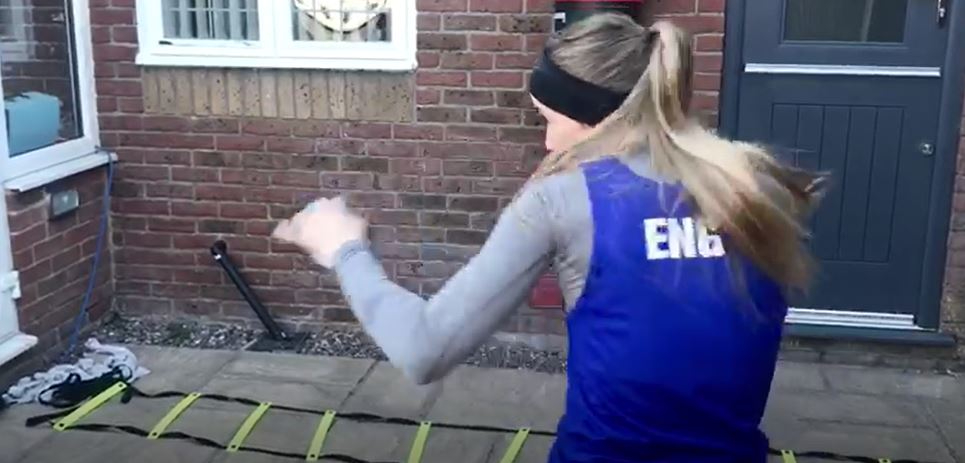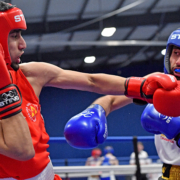
Q&A regarding the Coronavirus Pandemic
November 18, 2020 | by Matt Halfpenny
As we reach the scheduled halfway point of the second national lockdown, England Boxing has pulled together key information, much of which has been previously distributed in newsletters and issued on the website, to answer some of the questions that have recently been posed by Members.
Given that things are changing all the time, England Boxing will endeavour to update the Membership as soon as possible when key changes take place.
Any further questions can be directed to enquiries@englandboxing.org
Why do clubs have to shut down when they have gone to a lot of trouble to follow the guidelines and ensure they are COVID-secure?
The simple reason is because the laws set by the government in England requires it.
There is absolutely no benefit to England Boxing to stop Clubs and Members boxing, it’s the very reason for the organisation’s existence since 1880. England Boxing is following laws and restrictions laid down by the government as they are legally bound to do so.
Since the start of the Coronavirus Pandemic, as with other sports governing bodies England Boxing has had to follow the laws and restrictions as laid down by the government and all guidelines that have been drawn up to fall in line with that. This is to ensure the safety of our members and their families. It needs to be remembered that this pandemic has regrettably cost the lives of over 50,000 people in this country, including those, tragically, who have been part of the amateur boxing in this country.
These lockdown laws don’t just apply to boxing clubs, but applies to all sports, including football, basketball, other combat sports etc.
We are aware that approximately three local councils have said differently, but we have checked with the DCMS and they say the interpretation is incorrect. We continue to seek clarity. It’s noted that the huge majority of councils have said gyms need to shut.
Why can we not do pad work or spar? What have England Boxing done about this? How it that Scottish clubs have been allowed to do it?
Again, the government has said we can’t do pad work or sparring. Unfortunately, boxing is, by its very nature, a close contact sport, therefore presents far greater risk of transmission than sports such as football, not least as they are played outside, hence why there are different restrictions.
We met with DCMS in July and submitted an overall plan for the return to boxing along with other combat sports and a specific plan for pad work (including the adaptions we would make e.g. visors, protective clothing, time spent doing the pad work) at the beginning of August. As this will change government policy, the plans have to go through a triple lock process of agreement by Public Health England, Cabinet Office and Number 10 office. They obviously have a lot going on at the moment and they also highlight the close contact nature of the sport when deciding what is permitted . We continue to try and get this changed.
We have also highlighted the physical, mental health and financial problems this has caused to Members and Clubs. This is not a problem confined to boxing, it applies to other combat sports and many other sectors of society and business too.
In Scotland, they were recently have been allowed to do pad work, but, in many, areas, this is now not permitted once again because of a tightening of restrictions north of the border. The reason for these differences is that Scotland has a different government to England in terms of making decisions regarding the Coronavirus Pandemic, and so have different policies across many areas. We have highlighted to DCMS that Scottish clubs have been allowed to do pad work where it has been deemed that COVID-19 case numbers are sufficiently low – and are pushing the case to have the same in England.

Can clubs still open for under-18s?
The guidance we have been issued from DCMS and Sport England is that all indoor sports facilities must close, even for under 18s, except for the specific circumstances of providing existing school-related boxing sessions where it was already a recognised and approved part of the school’s curriculum (in PE lessons) or after-school sessions where it was already a recognised and approved part of the school’s delivery for the purpose of providing wraparound care e.g. after school clubs. Sessions for these purposes cannot be set up retrospectively.
If we have a pro section of our gym, can our adult amateurs join them to spar?
No. Boxers from the amateur and professional ranks have to follow their own governing body’s guidelines and, for the professionals, that’s the British Boxing Board of Control. Professional and amateur boxers cannot mix at this point and, as stated previously, amateurs cannot spar anyway.
So why are the rules different for GB boxers and professionals?
Again, these have been laid out by the government, and not the governing bodies, who oversee them. These are the same rules that allowed professional football, cricket and rugby to return. The reasoning, as England Boxing understands, is that those training as elite boxers (GB pathway boxers only) and paid professionals have access to safer environments as far as COVID-19 transmission is concerned (significantly smaller numbers, single venues, more PPE, testing where required etc).
The full government details on professional and elite level sport, including definitions, can be found here.
Are there any updates on courses, as safeguarding and level one qualifications are going to expire soon for a lot of coaches?
It is hoped that courses will be back underway early in the New Year once the second lockdown has ended and people are permitted to mix. However, it is likely these will be in smaller numbers than previously and people will have to remain socially distanced.
England Boxing aims to provide an update on coaching qualifications that have expired in due course, as well as new time frames for when courses will need to be completed by.
However, the DBS certificates process and the need for valid certificates remains in place.
How does the Coronavirus Pandemic affect England Boxing’s funding?
England Boxing’s yearly funding – and the areas Sport England funding, which forms part of its annual budget, can be spent – had already been set well before the onset of the Coronavirus Pandemic and remains unchanged because of it.
As well as supporting England Boxing, Sport England has also handed out more than £1.15 million to boxing clubs since the start of the Coronavirus Pandemic through the Community Emergency and Tackling Inequalities Funds. This is on top of other grants and lottery money issued to clubs.
If England Boxing went against government laws and Sport England recommendations, then this funding, which goes directly to clubs, would be stopped.
Overall, more than £7.5 million of grants and funding that has been secured by boxing clubs during the Coronavirus Pandemic, with the help of regional Club Support Officers.
To try and help the clubs as much as possible not only have we helped facilitate the emergency funding, we have also waived the Club membership fee of £220 and the reduced the membership fee by 50% to £5.50 for boxers and £11 for coaches and officials.
Our club is struggling financially, how can we get help?
As during the first lockdown, England Boxing is here to help. Firstly, you can go to the Financial Assistance page on the England Boxing website, which details current funding pots that are available to clubs. Please be assured we continue to seek and campaign for additional funding.
Secondly, our team or regional Club Support Officers are happy to offer their support. Click here to find contact details for the one in your area.
xxxxx
#SaveOurSports
Sign the petition to #SaveOurSports. We at England Boxing, along with UK Active, the Sport and Recreation Alliance, other national governing bodies of sport, and a host of others in the sports sector are calling for the government to instigate emergency funding in the form of a Sports Recovery Fund to ensure sport clubs, fitness and leisure facilities – the lifeblood of communities across the nation – can remain open and survive the coming difficult months of the Coronavirus Pandemic.


















